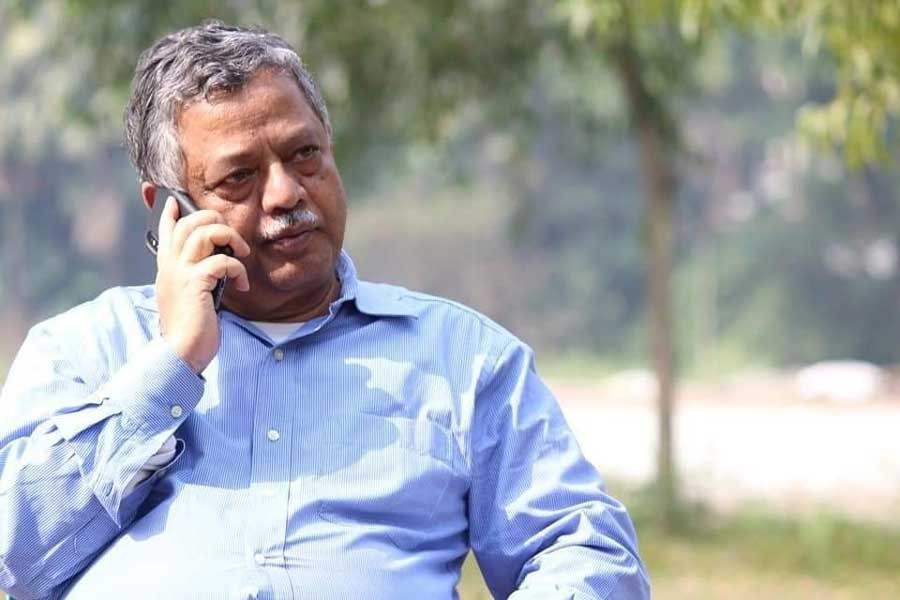
Published :
Updated :

Centre for Development Innovation and Practices (CDIP) is a mid-size microfinance NGO, established in 1995 in a remote village with a personal donation of the founder, Muhammad Yahiya. Currently, CDIP has 200 thousand (2 lac) borrowers across 18 districts in Bangladesh. Among others, CDIP has been known for their extraordinary and innovative education initiative for elementary school-going children from extremely poor households in rural areas.
Muhammad Yahiya's idea behind the education programme was to reduce the then rampant elementary school drop-out, especially from the extremely poor households. One of the key reasons of drop-out was not-doing homework by children, leading to unsuccessful annual examination. The major reason of not-doing homework is the lack of assistance received from parents or tutors typically available in affluent families in which parents have at least some education or hire tutors. In the disadvantaged families, parents are unlettered and thus cannot provide help in homework and thus children attend classes without any preparation and cannot perform in the classes. This has at least two consequences -- in-class humiliation due to underperformance and grade failure in periodical and final examinations. In this situation, the easy thing for children is to drop from school. The drop-out rate at the primary school level is very high, at over 20 per cent. This has been a major concern of the nation's laudable flagship development programme.
CDIP introduced their after-school programme organised and taught by village women with secondary education. Currently, there are over 2,500 such women for about 60,000 primary-school children. Rigorous research undertaken by notable academics and researchers shows that children participating in CDIP's after-school programme experienced significantly lower primary school discontinuation than those children attending otherwise-comparable schools in control villages. Subsequently, the CDIP after-school programme has been adopted by ASA, a mega microfinance and development NGO in Bangladesh as well as by some other NGOs. This initiative of after-school programme can help millions of disadvantaged children enhance their school performance and thus graduate to the next level of schooling in Bangladesh and similar countries.
Muhammad Yahiya was one of the pioneers who devoted himself to innovations of alleviating poverty in the mid-1970s when the nation was undergoing serious resource scarcities, hunger, and poverty. A 1969-student movement organiser, a progressive thinker, and a Liberation War torture-cell survivor, he after his graduation from Dhaka University in 1974 went to a village where Cumilla BARD does research on village development. He resided there and tried to learn how group formation for income generation works. Then, he was one of the members of senior leadership team who founded PROSHIKA based in Cumilla. But in the early 1980s he decided to move to Zambia and joined UNDP as a resident adviser to help in rural development. He then came back to Dhaka in an international position at UNDP. In a few months he switched his job to the World Bank in Indonesia as a development adviser. With an invitation from Professor Yunus, he returned home and joined Grameen Bank as General Manager in the early 1990s but left Grameen Bank and started his own CDIP in 1995. Muhammad Yahiya was determined to develop homegrown programmes without external help, especially foreign donation, and he showed it is very much possible.
In his lifetime Muhammad Yahiya could see the shining Bangladesh in terms of social and economic development and significantly contributed to that development journey. A gifted, talented and charismatic son of the soil, Yahiya will be remembered by the hundreds and thousands of CDIP participants and families forever.
Mizanur Rahman, PhD is Senior Research Adviser, MEASURE Evaluation, University of North Carolina at Chapel Hill, USA. Location: icddr,b, Dhaka, Bangladesh
rahmanm@email.unc.edu


 For all latest news, follow The Financial Express Google News channel.
For all latest news, follow The Financial Express Google News channel.